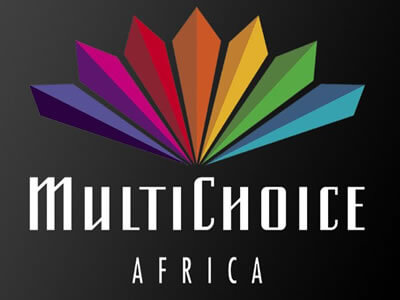The place of MultiChoice, owners of DStv and GoTV, in the emergence of the PayTv in Africa and in Nigeria in particular cannot be wished away as the pioneer and the pivot for others in the sector. Over the years, the company has come to be a beacon of what television should be, especially in the areas of sports, music and entertainment.
But with time, came the problem of appropriate pricing of bouquet fees across the countries the South African company operates in. The point is that many believe that the company is ripping Nigerians, especially given the fact that the country is going through hard times. Worst still, many are of the belief that MultiChoice over-prices its bouquets in Nigeria more than other African countries as evidenced by those who spoke on these issues.
For instance, Mr Bala Mohammed, in a chat said: “Contrary to the initial defence of Multichoice that it cannot afford to reduce its monthly bouquet fees across Africa due to increasing inflation and exchange rates, the company appears to have bowed to pressure as it slashed prices by over 20 per cent.
“Investigations revealed that MultiChoice was in a hurry to slash the fees, which some critics had described as a Greek gift, because of the fact that a new pay TV is about to emerge. This price cut was expected to position the company as a brand that cares for its subscribers.”
Some other subscribers, who spoke in separate interviews, disclosed that they had already stopped their subscriptions with the company while they scouted for cheaper entertainment.
For example, Mr Toba Biobaku, a subscriber to DStv, alleged that the company is allergic to providing good services for Nigerians at affordable prices.
To this manager of a construction firm, the company seems to have a passion for fleecing Nigerians without giving back value for their money. Despite the current economic recession, he stated that several Nigerians still renew their subscription and the reward they get from Multichoice is to use their monies to reward subscribers in other African nations.
“When Multichoice bowed to pressures made by consumers and the Consumer Protection Council recently, when it introduced a customer care toll free lines easily, I knew that the company has a hidden agenda. The most painful part of it is that most of us are being cheated without compensation as it failed to clear the E-16 code from our television sets for a week. When the error was erased later, my subscription was not extended,” he lamented.
Another subscriber that is perturbed by the plan of the operator of the pay TV service is the Managing Director of Right Touch Fashion. The premium bouquet subscriber threatened to lead a peaceful protest to the Victoria Island, Lagos headquarters of the company along with some of her friends, who are also premium subscribers.
For her, the tariff of the bouquet is too expensive compared to what other subscribers in Kenya, Zimbabwe and Botswana pay. According to her, asking Nigerian viewers to pay more for fewer channels and asking their counterparts in those countries to pay less for more is absurd and a way of saying Nigerians are gullible.
“Nigeria is its biggest market and should be the most favoured or serviced nation. Without any doubt, most of the foreign companies operating in Nigeria have sabotaged our economy deliberately. We should stop deceiving ourselves that South African, Chinese and American companies in Nigeria are here to develop our economy. They are attracted by our population and they are only after their interest alone. DStv does not want us to develop our pay TV industry and that is the reason most of the indigenous firms have packed up. It does not want us to compete with their products because it also has billions of jobless people to look after in South Africa. If we stop viewing their channels, it would be frustrated out of our country,” she argued.
Another subscriber said there are indications that hundreds of thousands of the subscribers of the pay TV firm might not renew their monthly subscription if the company embark on the price slash in other African nations and left Nigeria out of the slash.
However, a lawyer, Mr Segun Adejola, stated that while most Nigerians suffered in silence, foreign companies like Multichoice ripped them off their hard earned money.
Aside from the fact that he also believes it is wrong for an international company to set double standards for its patrons, he said that subscribers should fight for their rights using legal means by questioning the decisions of the firm, sending complaints to regulatory agencies like the Consumers’ Protection Council and the Federal Ministry of Communication and Technology.
But reacting to the development, the Managing Director of MultiChoice in Nigeria, Mr John Ugbe in a chat said: “When reviewing our DStv offering and pricing points in each country, we take into account local dynamics such as inflation, currency devaluations, programming costs, overheads as well as efficiencies for each business.
“When the Naira was recently devalued we didn’t increase prices in order for our customers to continue enjoying the best entertainment at no additional cost. Our biggest costs are content and satellites which are denominated in US dollars and as such have escalated enormously since the devaluation of the Naira. We continue to pay US dollar costs, however given that our customers have faced the harsh economic conditions over the past 12 months, we have committed to absorbing these costs and not pass them on to our customers.
“The Premium package which comes to about $40 dollars a month after conversion, costs up to $80 and $90 in other countries across Africa, so even with the reduction in these other countries, the subscription prices in MultiChoice Nigeria remains one of the lowest across Africa. ”
WATCH TOP VIDEOS FROM NIGERIAN TRIBUNE TV
- Relationship Hangout: Public vs Private Proposals – Which Truly Wins in Love?
- “No” Is a Complete Sentence: Why You Should Stop Feeling Guilty
- Relationship Hangout: Friendship Talk 2025 – How to Be a Good Friend & Big Questions on Friendship
- Police Overpower Armed Robbers in Ibadan After Fierce Struggle






